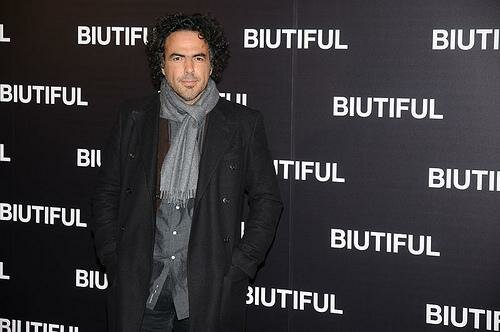Spain: “Biutiful” and My Shame at Being Chinese
Papa, how do you spell “beautiful”, she asked. You spell it the way it's said, he told her. And that was how they made this film.
It took a Mexican director to bring to the commercial movie screen the wretched story of Chinese migrant workers, in a Spanish film, no less.
I guess that is one good thing to come out of globalisation.
As a Chinese person, “Biutiful” made me squirm.
The film made me wince, and my subconscious reminded me I could have ended up living the life of one of these, my fellow yellow-skins.
The Chinese were not the main cast, but they bore strong supporting roles to the lead, Spaniard Javier Bardem.

There was the businessman who thought nothing of exploiting his own people in the name of money-making; there was his closet gay lover, young, privileged with a pale, arrogant face that never knew a day of hard work; and there were the workers.
The wretched, wretched workers.
The ones with no names. No credits. No identities.
They were the ones making fake Louis Vuitton bags in a stuffy basement, the ones who had sold their family's last piece of farmland and then borrowed some, to head for the civilised world, where they heard they could make enough in a year to come back to China and buy an even bigger piece of land.
Actually, the film didn't say anything about these workers. You wouldn't know from the film the price the workers paid to get to Europe. You know, only because you have met some of these workers, and they have told you their stories.
They had lived in China their whole lives. With less and less to farm, and it becoming harder and harder to support their families in the provinces, they headed to the big cities, to foreign lands to look for work.
It's become a lucrative trade, this modern-day slavery. Each one had to pay a middleman anything from one to six thousand U.S. dollars, for the opportunity to work on a construction site somewhere in the civilised West.
This is how Chinese men hidden behind the scaffolding on construction sites got there. The lucky ones have papers. But don't take it that the papers are legitimate. Not that the workers would know, anyway. Not everything in the world is written in Mandarin.
From the exploiting to the exploited, in his latest film, gritty and hard-hitting as is his signature, Alejandro González Iñárritu brings you the lives of these Chinese in Spain.

Black, White and Grey
If this were Hollywood, it would be a mishmash of heroes and villains, celluloid's two-dimensional characters of good and evil. They would rise up, justice would prevail and tears will flow at a happily-ever-after ending.
With Iñárritu though, characters are grey as the smoke that spews from the chimneys of the factories in the film.
And “Biutiful” is as bleak as the Catalonian winter against which it is set.
Who will save you then? Surely not God, you think.
The morally unshakeable like to say that bad things happen, when good people don't do anything.
Wrong. Bad things happen, period. And sometimes good people don't do anything, because after Mother Teresa, there just aren't any more good people in the world. There are just people in situations, doing the best they can with what they have, with their capabilities, conscience, character, and circumstance.
Who among us doesn't know that children are being trafficked, third-world impoverished being exploited, women being abused... The problem is bigger than most of us. And it is easier to look away with calloused hearts, because if you don't, they will break.
Who will save you then?
Surely not God, you think.
Sitting through that film, with pictures of the Virgin, motifs of the Church – this is Spain after all – I wondered, where is the divine in all of this? Has he or she too turned away because it has become too ghastly to look?
Estas hablando Chino?
When the Spanish don't understand what you said, they'll ask if you are speaking Chinese. That is their idea of an alien culture. Now those aliens live among them.
They are the ones from whom Spaniards buy beer on Sundays, when the other stores are closed.
They are the ones who go home to a cramped apartment shared with another 20 from the same province.
They are the ones who speak fondly of modern Chinese cities. They will tell you the squalid, run-down European cities have nothing on even China's spanking new second-tier ones. Just too bad they can't get a job back home that pays well enough.
The Chinese migrants wandering in squares with cooler boxes selling cans of beer to Spanish revellers spilling out of the bars.
The Chinese shopkeepers behind the counters of their small, overstocked grocery stores.
The Chinese construction workers squat outside work sites when their 12-hour days are finally done.
The Chinese migrant workers in “Biutiful”, and the real-life ones. They don't want to be there in that strange land. It is for the money, for the better lives.
Yes, I am Chinese. I understand every word that comes out of their mouths.
I used to speak to them. Now I have stopped asking them their stories.
Unpaid wages, incomplete papers, physical abuse.
I decided one day to just cross to the other side of the road and look away.
He made you look. And look. And look. Till you really can't draw back into your chair anymore.
And it is to my eternal shame that Iñárritu did not look away to tell the story of the exploitation of my people. He fished out their pathetic tales and wove them into what is possibly his best work to date.
Heartless, yet full of it.
Iñárritu made it stark. He killed them all. He made you look. And look. And look. Till you really can't withdraw into your chair anymore.
It says in the credits that you wrote the story, so for what it's worth, Mr Iñárritu, xie xie for not looking away like me.
After the film, I walked out of the cineplex. It was almost midnight. Along the pavement were some Filipinas in cut-out tube dresses, dragging on cigarettes. In their best American accent, they called out to some white men in a most seductive tone.
“Come over, sir! Come on!”
Just a few paces from them was a bulldozer by the side of the road. A Bangladeshi was behind the wheel. A few Chinese men in hard hats were working, fixing the road surface.
How do you spell “beautiful”?
You spell it the way it's said.
Just like how the film was made.

















